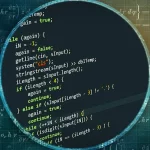
How Quantum Computing is Shaping the Future of Drug Discovery
August 25, 2023Introduction
In recent years, quantum computing has transitioned from the realm of theoretical possibilities to real-world applications. One of the most promising and fascinating applications lies in drug discovery and bioinformatics. Quantum computing has the potential to revolutionize these fields by significantly accelerating research processes and enabling the accurate modeling of complex biological systems. In this article, we delve into how quantum computing is transforming drug discovery, the challenges it faces, and what the future holds.
Hybrid Classical-Quantum Workflows in Drug Discovery
Researchers are actively exploring ways to combine the benefits of classical and quantum computing. Hybrid workflows are one such outcome, which take the best of both worlds to find ligands that bind to proteins, even accounting for genetic mutations. These workflows mark a critical development, illustrating that quantum computing can offer tangible improvements in drug discovery research.
Accelerating Drug Discovery: From Years to Weeks
The pharmaceutical industry is heavily time-bound, with drug discovery processes often taking several years. With quantum-inspired algorithms, the discovery of effective drug compounds could be expedited, possibly reducing this lengthy process to just months or weeks. For example, Gero, an AI-driven biotech company, has showcased the feasibility of applying quantum computing to drug design, emphasizing its transformative potential.
Targeting the “Undruggable”
Quantum computing offers scientists the unprecedented ability to target proteins previously considered “undruggable.” This capability can dramatically change the scope of drug discovery, enabling researchers to explore new avenues for combating diseases that were previously out of reach.
Powering Up Analysis and Modeling
The ability to model large, complex biological molecules and chemical reactions accurately is a linchpin in drug discovery. Quantum computing, when combined with machine learning techniques, can handle such complex calculations with higher accuracy. For example, POLARISqb built the first drug discovery platform that uses a quantum annealer to solve combinatorial optimization problems. This could revolutionize the way pharmaceutical research is conducted.
Industry Collaboration and Recognition
Quantum computing has piqued the interest of major players in the pharmaceutical industry, leading to alliances aimed at developing quantum solutions for drug discovery. Such collaborations indicate that the pharmaceutical industry recognizes the immense potential of quantum computing in reshaping drug discovery workflows and methodologies.
Molecular Discoveries via Quantum Computing
While still in nascent stages, quantum computing has shown promise in discovering new molecules, such as lithium hydride. Additionally, quantum computing can significantly enhance generative chemistry, a field that leverages generative modeling and machine learning to expedite drug discovery.
Challenges and the Road Ahead
Although quantum hardware is still limited and in developmental stages, researchers are keen on incorporating it into existing drug discovery workflows. There is enormous potential for quantum computing to accelerate drug discovery, improve molecular analysis, and open up new pathways for exploration and innovation.
Quantum computing is on the cusp of making breakthroughs that could forever change the landscape of drug discovery and bioinformatics. The capabilities of this revolutionary technology, from speeding up research to allowing the discovery of new molecules, are boundless. Although challenges exist, the advancements in the field are promising, positioning quantum computing as a pivotal player in the future of drug discovery.
Simulating molecules is a cornerstone of various scientific and industrial applications—from drug discovery to materials science. Traditional computational methods have served us well but come with inherent limitations, especially when it comes to complex molecular systems. Enter quantum computing, a revolutionary technology with the potential to drastically improve molecular simulations. This article delves into the intricacies of simulating molecules using quantum computing, contrasting it with classical algorithms, and exploring its future possibilities.
The Quantum Leap: Understanding the Process
Quantum System Simulation
Quantum computing aims to simulate the behavior of quantum systems, which is difficult to efficiently capture using classical supercomputers. The limitation arises from the exponential increase in quantum states as the number of particles in the system grows. Quantum computing, by simulating one quantum system with another, overcomes this obstacle, offering a more precise model of quantum interactions in molecules.
Quantum Algorithms at Work
There are various quantum algorithms designed specifically for molecular simulations, such as Quantum Phase Estimation (QPE). QPE forms the backbone of several other quantum algorithms and has specific applications in computational chemistry. Algorithms like these are iteratively applied to manipulate the simulated molecule, probing into lower-energy states and their properties.
The Relevance in Computational Chemistry
Computational chemistry is a field that stands to benefit enormously from quantum computing. Traditionally, chemists have relied on classical algorithms to simulate molecular dynamics. However, quantum computing promises more accurate and efficient simulations, revolutionizing the field in the process.
Quantum vs Classical: The Key Differences
Favorable Scaling
Quantum algorithms often show better scaling behavior than classical algorithms. As the size of the molecule being simulated increases, the computational resources required by quantum algorithms grow at a much slower rate.
Leveraging Quantum Phenomena
Quantum algorithms take advantage of phenomena like quantum parallelism, superposition, and entanglement to provide simulations that are more accurate than their classical counterparts. These features allow quantum algorithms to explore a larger solution space and capture intricate molecular interactions effectively.
Hybrid Approaches
In some instances, quantum algorithms employ a blend of classical and quantum computation to improve scalability and overcome limitations. These hybrid approaches can offer the best of both worlds.
Limitations and Challenges
While quantum computing presents a promising future for molecular simulations, it is essential to acknowledge its limitations. The technology is still in its nascent stages and requires extensive research and development to become a reliable tool for large-scale molecular simulations.
Classical Algorithms: Not Entirely Outdated
It’s worth mentioning that some molecular simulations are currently better suited for classical algorithms. Techniques like Classical Monte Carlo and molecular dynamics continue to be relevant for simulating larger molecular systems due to the limitations in current quantum hardware.
The advent of quantum computing is set to transform the realm of molecular simulations profoundly. Though still in its infancy, it offers a promising avenue to overcome the limitations posed by classical algorithms. As quantum hardware and algorithms continue to mature, we can look forward to more accurate, efficient, and comprehensive simulations of molecular systems, which could be revolutionary for fields like drug discovery and materials science.
Quantum computing holds the tantalizing promise of revolutionizing multiple fields, including medicine, cryptography, and materials science. One of its most exciting applications is simulating molecular interactions—a task of great significance in chemistry and pharmacology. While quantum computing promises to drastically outperform classical methods in many aspects, it’s crucial to delve into the nuances and limitations that it currently faces, particularly in the realm of molecular simulations. In this article, we’ll explore these challenges, the current state of research, and the recent breakthroughs that are setting the stage for a quantum revolution in molecular simulations.
Limitations of Quantum Algorithms for Simulating Molecules
Limited Number of Qubits
Current quantum hardware restricts the number of qubits, making it a challenge to simulate large and complex molecules. Quantum algorithms for molecular simulation require a sufficient number of qubits to accurately represent the molecular system, but the limited number of qubits available curtails the scope of simulations.
Noise and Errors
Quantum systems are sensitive to environmental factors, leading to noise and errors. These factors can compromise the accuracy and reliability of simulation results. As the technology is still in its infancy, mitigating these errors is a substantial challenge.
Limited Depth and Circuit Complexity
A high number of quantum gates often leads to an increase in circuit depth. The limitations in the current quantum hardware make it arduous to implement deep circuits. This restricts the complexity of the simulations, potentially limiting their accuracy and utility.
Limited Scalability
Quantum algorithms might not scale efficiently for simulating larger molecular systems. Classical algorithms like Monte Carlo methods are often more efficient in simulating large-scale molecular systems, posing a challenge for quantum algorithms.
Approximations and Ansatz Limitations
Quantum algorithms often rely on approximations and pre-defined wavefunction ansatz, which could limit the simulation’s precision compared to classical algorithms.
Challenges in Scaling to Larger Systems
Exponential Scaling
An exponential increase in the number of quantum states with the number of particles in a system makes it challenging to simulate larger molecules, emphasizing the need for more qubits and deeper circuits.
Hybrid Approaches
Researchers are exploring hybrid classical-quantum approaches, like combining fermionic quantum Monte Carlo algorithms with quantum computations, to simulate larger molecular systems more efficiently.
Current State of Research and Recent Breakthroughs
Favorable Scaling
Despite the limitations, quantum algorithms offer the prospect of favorable scaling compared to classical approaches. Research is ongoing to capitalize on this potential.
Adaptive Variational Algorithms
One of the most promising recent developments is the creation of adaptive variational algorithms that offer more accurate wavefunctions and energies, potentially overcoming the limitation of pre-selected wavefunction ansatz.
Quantum Algorithms for Vibronic Transitions
Quantum algorithms have been developed to simulate vibronic transitions between different charge states of a molecule, adding another layer to what can be simulated accurately.
The Significance of the Recent Breakthrough by Quantinuum
Quantinuum’s breakthrough in simulating a hydrogen molecule using a partially fault-tolerant algorithm is a major step toward scalable and fault-tolerant quantum chemistry. While the simulation is relatively simple, it paves the way for future, more complex simulations.
Conclusion
Quantum computing is still a developing field, and although it faces numerous challenges in simulating molecular systems, significant strides are being made. Ongoing research and technological advancements promise to mitigate these limitations, bringing us closer to a quantum revolution in molecular simulations.
By acknowledging these limitations and challenges, we are better poised to navigate the evolving landscape of quantum computing applications in molecular simulations. With companies like Quantinuum pushing the boundaries, the future looks bright, albeit with a few quantum caveats.
















